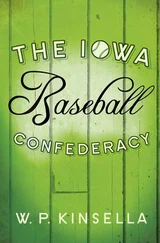John Toole - A Confederacy of Dunces
Здесь есть возможность читать онлайн «John Toole - A Confederacy of Dunces» весь текст электронной книги совершенно бесплатно (целиком полную версию без сокращений). В некоторых случаях можно слушать аудио, скачать через торрент в формате fb2 и присутствует краткое содержание. Год выпуска: 1980, Жанр: Современная проза, на английском языке. Описание произведения, (предисловие) а так же отзывы посетителей доступны на портале библиотеки ЛибКат.
- Название:A Confederacy of Dunces
- Автор:
- Жанр:
- Год:1980
- ISBN:нет данных
- Рейтинг книги:5 / 5. Голосов: 1
-
Избранное:Добавить в избранное
- Отзывы:
-
Ваша оценка:
- 100
- 1
- 2
- 3
- 4
- 5
A Confederacy of Dunces: краткое содержание, описание и аннотация
Предлагаем к чтению аннотацию, описание, краткое содержание или предисловие (зависит от того, что написал сам автор книги «A Confederacy of Dunces»). Если вы не нашли необходимую информацию о книге — напишите в комментариях, мы постараемся отыскать её.
A Confederacy of Dunces — читать онлайн бесплатно полную книгу (весь текст) целиком
Ниже представлен текст книги, разбитый по страницам. Система сохранения места последней прочитанной страницы, позволяет с удобством читать онлайн бесплатно книгу «A Confederacy of Dunces», без необходимости каждый раз заново искать на чём Вы остановились. Поставьте закладку, и сможете в любой момент перейти на страницу, на которой закончили чтение.
Интервал:
Закладка:
“You can’t go bowling,” Ignatius bellowed. “This is the most absurd thing that you have ever done.”
Mrs. Reilly’s door slammed. Ignatius found the envelope and tore it to shreds in opening it. He pulled out some art theater’s year-old schedule for a summer film festival. On the reverse side of the rumpled schedule there was a letter written in the uneven and angular hand that constituted Minkoffian penmanship. Myrna’s habit of writing to editors rather than friends was always reflected in her salutation:
Sirs:
What is this strange, frightening letter that you have written me, Ignatius? How can I contact the Civil Liberties Union with the little evidence that you have given me? I can’t imagine why a policeman would try to arrest you. You stay in your room all the time. I might have believed the arrest if you hadn’t written about that “automobile accident.” If both of your wrists were broken, how could you write me a letter?
Let us be honest with each other, Ignatius. I do not believe a word of what I read. But I am frightened—for you. The fantasy about the arrest has all the classic paranoid qualities. You are aware, of course, that Freud linked paranoia with homosexual tendencies.
“Filth!” Ignatius shouted.
However, we won’t go into that aspect of the fantasy because I know how dedicated you are in your opposition to sex of any sort. Still your emotional problem is very apparent. Since you flunked that interview for the teaching job in Baton Rouge (meanwhile blaming it on the bus and things—a transferral of guilt), you have probably suffered feelings of failure. This “automobile accident” is a new crutch to help you make excuses for your meaningless, impotent existence. Ignatius, you must identify with something. As I’ve told you time and again, you must commit yourself to the crucial problems of the times.
“Ho hum,” Ignatius yawned.
Subconsciously you feel that you must attempt to explain away your failure, as an intellectual and soldier of ideas, to actively participate in critical social movements. Also, a satisfying sexual encounter would purify your mind and body. You need the therapy of sex desperately. I’m afraid—from what I know about clinical cases like yours—that you may end up a psychosomatic invalid like Elizabeth B. Browning.
“How unspeakably offensive,” Ignatius spluttered.
I don’t feel much sympathy for you. You have closed your mind to both love and society. At the moment my every waking hour is spent in helping some dedicated friends raise money for a bold and shattering movie that they are planning to film about an interracial marriage. Although it will be a low-budget number, the script itself is chock full of disturbing truths and has the most fascinating tonalities and ironies. It was written by Shmuel, a boy I’ve known since Taft High days. Shmuel will also play the husband in the movie. We have found a girl from the streets of Harlem to play the wife. She is such a real, vital person that I have made her my very closest friend. I discuss her racial problems with her constantly, drawing her out even when she doesn’t feel like discussing them—and I can tell how fervently she appreciates these dialogues with me.
There is a sick, reactionary villain in the script, an Irish landlord who refuses to rent to the couple, who by this time have been married in this subdued Ethical Culture ceremony. The landlord lives in this little womb-room whose walls are covered with pictures of the Pope and stuff like that. In other words, the audience will have no trouble reading him as soon as they get one glimpse at that room. We have not cast the landlord yet. You, of course, would be fantastic for the part. You see, Ignatius, if you would just decide to cut the umbilical cord that binds you to that stagnant city, that mother of yours, and that bed, you could be up here having opportunities like this. Are you interested in the part? We can’t pay much, but you can stay with me.
I may play a little mood music or protest music on my guitar for the soundtrack. I hope that we can finally get this magnificent project on film soon because Leola, the unbelievable girl from Harlem, is beginning to bug us about salary. Already I’ve bled about $1,000 from my father, who is suspicious (as usual) of the whole enterprise.
Ignatius, I’ve humored you long enough in our correspondence. Don’t write to me again until you’ve taken part. I hate cowards.
M. Minkoff
P.S. Also write if you’d like to play the landlord.
“I’ll show this offensive trollop,” Ignatius mumbled, throwing the art theater schedule into the fire beneath the stew.
Four
Levy Pants was two structures fused into one macabre unit. The front of the plant was a brick commercial building of the nineteenth century with a mansard roof that bulged out into several rococo dormer windows, the panes of which were mostly cracked. Within this section the office occupied the third floor, a storage area the second, and refuse the first. Attached to this building, which Mr. Gonzalez referred to as “the brain center,” was the factory, a barnlike prototype of an airplane hangar. The two smokestacks that rose from the factory’s tin roof leaned apart at an angle that formed an outsized rabbit-eared television antenna, an antenna that received no hopeful electronic signal from the outside world but instead discharged occasional smoke of a very sickly shade. Alongside the neat gray wharf sheds that lined the river and canal across the railroad tracks, Levy Pants huddled, a silent and smoky plea for urban renewal.
Within the brain center there was more than the usual amount of activity. Ignatius was tacking to a post near his files a wide cardboard sign that said in bold blue Gothic lettering:
DEPARTMENT OF RESEARCH AND REFERENCE
I. J. REILLY, CUSTODIAN
He had neglected the morning filing to make the sign, spreading himself upon the floor with the cardboard and blue poster paint and painting meticulously for more than an hour. Miss Trixie had stepped on the sign during one of her occasional pointless tours of the office, but the damage was limited to only a small sneaker print on one corner of the cardboard. Still, Ignatius found the tiny imprint offensive, and over it he painted a dramatic and stylized version of a fleur-de-lis.
“Isn’t that nice,” Mr. Gonzalez said when Ignatius had stopped hammering. “It gives the office a certain tone.”
“What does it mean?” Miss Trixie demanded, standing directly beneath the sign and examining it frantically.
“It is simply a guidepost,” Ignatius said proudly.
“I don’t understand all this,” Miss Trixie said. “What’s going on around here?” She turned to Ignatius. “Gomez, who is this person?”
“Miss Trixie, you know Mr. Reilly. He’s been working with us for a week now.”
“Reilly? I thought it was Gloria.”
“Go back and work on your figures,” Mr. Gonzalez told her. “We have to send that statement to the bank before noon.”
“Oh, yes, we must send that statement,” Miss Trixie agreed and shuffled off to the ladies’ room.
“Mr. Reilly, I don’t want to pressure you,” Mr. Gonzalez said cautiously, “but I do notice that you have quite a pile of material on your desk that hasn’t been filed yet.”
“Oh, that. Yes. Well, when I opened the first drawer this morning, I was greeted by a rather large rat which seemed to be devouring the Abelman’s Dry Goods folder. I thought it politic to wait until he was sated. I would hate to contract the bubonic plague and lay the blame upon Levy Pants.”
“Quite right,” Mr. Gonzalez said anxiously, his dapper person quivering at the prospect of an on-the-job accident.
Читать дальшеИнтервал:
Закладка:
Похожие книги на «A Confederacy of Dunces»
Представляем Вашему вниманию похожие книги на «A Confederacy of Dunces» списком для выбора. Мы отобрали схожую по названию и смыслу литературу в надежде предоставить читателям больше вариантов отыскать новые, интересные, ещё непрочитанные произведения.
Обсуждение, отзывы о книге «A Confederacy of Dunces» и просто собственные мнения читателей. Оставьте ваши комментарии, напишите, что Вы думаете о произведении, его смысле или главных героях. Укажите что конкретно понравилось, а что нет, и почему Вы так считаете.











